Tag Archives: Division of Marine Fisheries.
NCFA Weekly Update for December 30, 2024
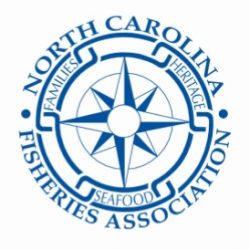 NCFA BOARD AND STAFF WISH YOU AND YOURS A VERY SAFE AND HAPPY NEW YEAR! Oyster and Clam FMP Public Comment,,, The Division of Marine Fisheries (DMF) is recommending phasing out mechanical clam harvest (clam kicking) and closing large areas to mechanical oyster harvest in their latest oyster and clam fishery management plan (FMP) update. Public comment is open and advisory committee meetings are scheduled starting next week. Clam FMP- The biggest change DMF recommends for mechanical clam harvest is to phase out clam kicking in three years unless the number of participants in the fishery increases to 10 and landings exceed 1 million clams. If participants and landings increase to the threshold, the Marine Fisheries Commission (MFC) will reconsider the phase out at their May 2027 business meeting. More details can be found at the links below. more, >>CLICK TO READ<< 14:45
NCFA BOARD AND STAFF WISH YOU AND YOURS A VERY SAFE AND HAPPY NEW YEAR! Oyster and Clam FMP Public Comment,,, The Division of Marine Fisheries (DMF) is recommending phasing out mechanical clam harvest (clam kicking) and closing large areas to mechanical oyster harvest in their latest oyster and clam fishery management plan (FMP) update. Public comment is open and advisory committee meetings are scheduled starting next week. Clam FMP- The biggest change DMF recommends for mechanical clam harvest is to phase out clam kicking in three years unless the number of participants in the fishery increases to 10 and landings exceed 1 million clams. If participants and landings increase to the threshold, the Marine Fisheries Commission (MFC) will reconsider the phase out at their May 2027 business meeting. More details can be found at the links below. more, >>CLICK TO READ<< 14:45
New law targets ‘ghost fishing’ by old gear. How discarded traps and nets are harmful
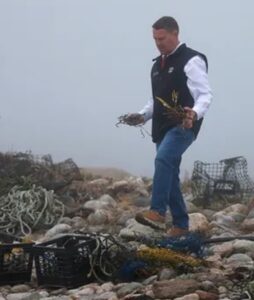 Abandoned fishing gear has posed problems for authorities wishing to clear it from state waters and shorelines for decades, but new legislation is aimed at making that task easier. An amendment by state Senate Minority Leader Bruce Tarr, R-Gloucester, to an existing statute will speed the process of removing the environmentally harmful debris. “Left unchecked, abandoned fishing gear poses several threats to our marine environment and ecosystems,” Tarr stated in a press release. One of the problems it creates, he said, is “ghost fishing.” Tarr said ghost fishing increases species mortality without any harvest benefit. He added derelict gear also presents a major risk for entanglement for right whales and other species, clutters and pollutes the ocean floor, and presents ongoing problems for coastal communities that deal with this form of pollution when it washes ashore. Photos, more, >>CLICK TO READ<< 07:07
Abandoned fishing gear has posed problems for authorities wishing to clear it from state waters and shorelines for decades, but new legislation is aimed at making that task easier. An amendment by state Senate Minority Leader Bruce Tarr, R-Gloucester, to an existing statute will speed the process of removing the environmentally harmful debris. “Left unchecked, abandoned fishing gear poses several threats to our marine environment and ecosystems,” Tarr stated in a press release. One of the problems it creates, he said, is “ghost fishing.” Tarr said ghost fishing increases species mortality without any harvest benefit. He added derelict gear also presents a major risk for entanglement for right whales and other species, clutters and pollutes the ocean floor, and presents ongoing problems for coastal communities that deal with this form of pollution when it washes ashore. Photos, more, >>CLICK TO READ<< 07:07
N.C. Division of Marine Fisheries sinks trawler at artificial reef site off Cape Lookout
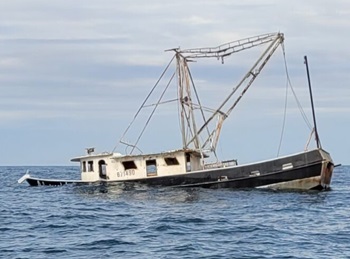 The state Artificial Reef Program sank a 55-foot trawler at the artificial reef site, AR-305, off Cape Lookout, last week. The program is part of the North Carolina Department of Environmental Quality’s Division of Marine Fisheries. The fishing vessel Alexandria Dawn, the latest addition to the artificial reef, was built in 1984, but has been out of use for around a decade, division officials announced Monday. Before sinking, the vessel was cleaned extensively in accordance with Environmental Protection Agency requirements, officials said. more, >>CLICK TO READ<< 12:14
The state Artificial Reef Program sank a 55-foot trawler at the artificial reef site, AR-305, off Cape Lookout, last week. The program is part of the North Carolina Department of Environmental Quality’s Division of Marine Fisheries. The fishing vessel Alexandria Dawn, the latest addition to the artificial reef, was built in 1984, but has been out of use for around a decade, division officials announced Monday. Before sinking, the vessel was cleaned extensively in accordance with Environmental Protection Agency requirements, officials said. more, >>CLICK TO READ<< 12:14
Fisheries division schedules day-long symposium on troubled summer flounder fishery
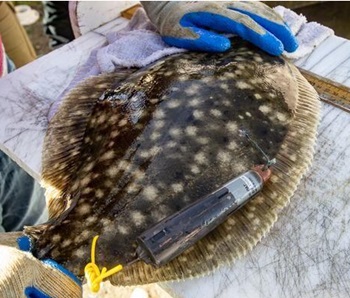 The N.C. Division of Marine Fisheries (NCDMF) has scheduled a day-long symposium on the southern flounder fishery, which is in such bad shape that the spring season was canceled in 2023 and the fall season was only a couple of weeks long. The event will be Wednesday, March 20 at the Riverfront Convention Center in New Bern and will begin at 9 a.m. The symposium will provide an opportunity for stakeholders, researchers and division staff to discuss various topics related to southern flounder, which up until the last few years has been one of the most valuable finfish species harvested by commercial and recreational fishermen in the state. more, >>click to read<< 07:41
The N.C. Division of Marine Fisheries (NCDMF) has scheduled a day-long symposium on the southern flounder fishery, which is in such bad shape that the spring season was canceled in 2023 and the fall season was only a couple of weeks long. The event will be Wednesday, March 20 at the Riverfront Convention Center in New Bern and will begin at 9 a.m. The symposium will provide an opportunity for stakeholders, researchers and division staff to discuss various topics related to southern flounder, which up until the last few years has been one of the most valuable finfish species harvested by commercial and recreational fishermen in the state. more, >>click to read<< 07:41
MA Awarded $4.6 Million to Support North Atlantic Right Whale Recovery and Lobster Industry
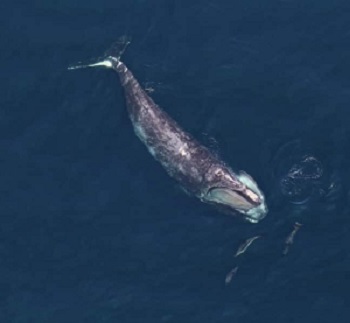 The Massachusetts Department of Fish and Game’s Division of Marine Fisheries (DMF) will receive more than $4.6 million from a congressional appropriation through the Atlantic States Marine Fisheries Commission to enhance the division’s nation-leading
The Massachusetts Department of Fish and Game’s Division of Marine Fisheries (DMF) will receive more than $4.6 million from a congressional appropriation through the Atlantic States Marine Fisheries Commission to enhance the division’s nation-leading
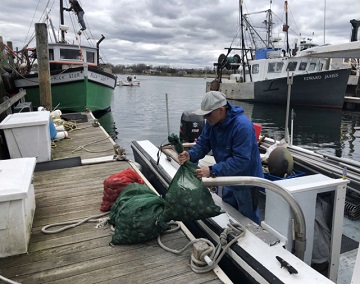
Rhode Island’s commercial fishing industry, by the numbers
The calamari comeback is going strong, while lobsters lag and flounders flounder. That’s according to a new Department of Environmental Management report on the fishing industry last year. In 2022, the overall value of commercial fishing landings in Rhode Island was $100.6 million. That’s about 10 percent lower than 2021 when you account for inflation. The drop is discouraging, but there’s a lot that plays into seafood landings annually, including biological, fisheries management, and economic factors, according to Conor McManus, chief of DEM’s Division of Marine Fisheries. The full DEM report also takes a look at recreational fishing, but for today, we’ll stick with a seafood sampler of data about the commercial fishing industry. >click to read< 08:23
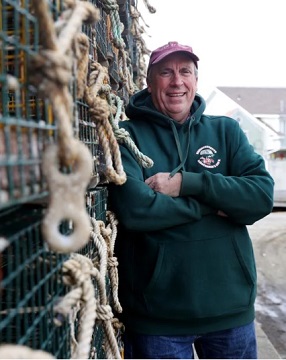
California sustainability group told people to stop eating lobster, so Massachusetts lobstermen file suit
Standing on a dock in his hometown of Gloucester, Mass., lobsterman Arthur Sawyer looked out at the peaceful, calm waters off of Cape Ann. Sawyer, president of the Massachusetts Lobstermen’s Association, and three other Bay State lobster fishers filed a class action lawsuit earlier this month against Monterey Bay Aquarium and the international Marine Stewardship Council, groups that consider lobstering a major risk to North Atlantic right whales and, hence, people shouldn’t buy lobsters anymore. “They have gone overboard targeting Massachusetts when we’ve been doing everything,” Sawyer told the Herald. “We have 100 percent closure right now. There is no place safer for right whales right now on the east coast than in Massachusetts waters.” >click to read< 11:12
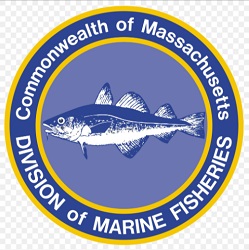
Electronic vessel trackers coming for lobster fishers
The Massachusetts Division of Marine Fisheries (DMF) announced that all commercial lobster permit holders with a federal lobster trap permit will be required to install a vessel tracking device beginning in the spring. DMF will cover the costs of the first three years for the 300 eligible vessels that fish from Massachusetts ports. “We expect to cover the costs of each eligible owner’s purchase, installation, and data plan for around $1,500,” the announcement reads. “Up to five different vendors are expected to offer devices for sale to the industry this winter. Eligible permit holders will be allowed to choose the approved tracking device that best fits their business.” >click to read< 18:33
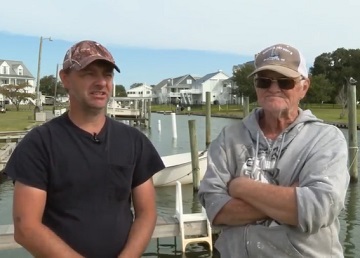
North Carolina: New quota cuts Southern flounder fishing off in one week, frustrating fishermen
Maurice Mann, a commercial fisherman, expressed his frustration. Maurice and his son Jasper Mann were geared up for a good season of flounder fishing, getting new nets and catching around 100 pounds of Eastern Carolina’s popular sea dwellers. After less than a week on the water, they found themselves thousands of dollars in the hole when their buyer told them the Division of Marine Fisheries said to reel it in. They were told the number of flounder they allowed to be caught commercially in September had already been met. Video, >click to read< 14:34
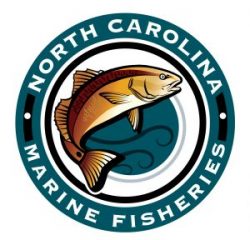
DMF resuming onboard observer program for estuarine gill net fishing May 1
The N.C. Division of Marine Fisheries announced Thursday, April 20 it will resume onboard observations of estuarine gill net fisheries beginning May 1. Onboard observations will be the primary method of observing the fisheries, with limited use of alternative platform observations primarily conducted by Marine Patrol officers. “The decision to resume onboard observations as the primary observation method is based on improved COVID-19 indicators,” Fishermen are reminded that an estuarine gill net permit is required to use anchored gill nets, both large-mesh and small-mesh, in estuarine waters for either commercial or recreational fishing. One of the conditions of the EGNP is to allow division staff to observe gill net operations. >click to read< 11:35
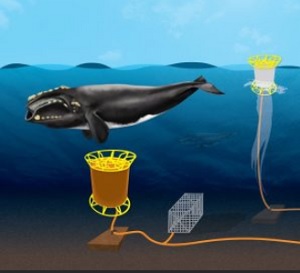
Massachusetts state regulators reject plan to use ropeless lobster traps
The proposal, submitted by a group of lobstermen organized under the name “Pioneers for a Thoughtful Coexistence,” asked regulators to allow them to set as many as 200 ropeless traps in areas along the South Shore, where lobster fishing is closed three months a year. DMF Director Daniel McKiernan denied the plan and laid out three reasons for his decision, the first being that the proposal “lacks a study design that will contribute meaningfully to further understanding the efficacy of ropeless fishing.” >click to read< 08:02
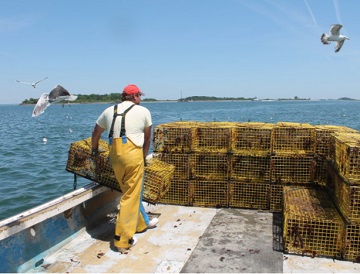
Cape Cod Bay: Lobsters started dying in their traps. Now scientists think they know why
In September of 2019, Tracy Pugh started getting phone calls about dead lobsters. Pugh is a biologist with the Massachusetts Division of Marine Fisheries, and a handful of fishermen in Cape Cod Bay were reporting traps full of dead lobsters, “anywhere from several dozen to hundreds,” she recalled. “So way, way more than normal.” Some reported dead fish and crabs in their traps, as well. One trawler came up with a bunch of dead scallops. Pugh, working with scientists at the Center for Coastal Studies, found the reason soon enough: >click to read< – Karenia mikimotoi, >click to read< 10:08
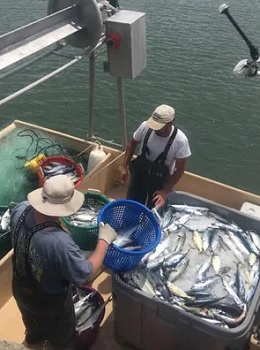
“We’re in pretty bad shape,” Commercial fishermen, fishing industry decline over the past 20 years
North Carolina commercial fishermen have complained for decades that government regulations and a variety of other factors threaten their livelihood and have them headed the way of endangered species. Glenn Skinner of Newport, executive director of the North Carolina Fisheries Association an advocacy group of commercial fishermen, said statistics back that up. “These declines are the result of many different factors. with regulations, the fear of future regulations or outright bans on commercial fishing gears being a significant factor,” Skinner said. He said public perception and political agendas drive the regulations. >click to read< 11:26
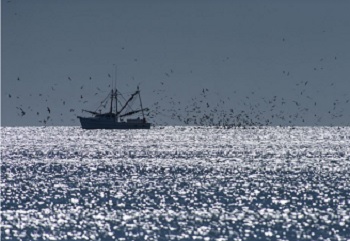
North Carolina commercial fishermen landed less seafood last year
In 2020, 42.9 million pounds of fish and shellfish were sold, a decrease of 19% from 2019 and about a 23% decrease from the previous five-year average, according to the Division of Marine Fisheries. The decrease in commercial harvest was linked to a 41.3% decrease in hard blue crab landings from 2019, which may be related to COVID-19 impacts. The Division of Marine Fisheries said several fishermen told officials that they found it difficult to move blue crabs at the beginning of the state’s stay-at-home order when many restaurants were closed. >click to read< 15:26
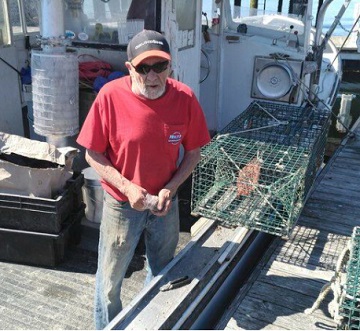
Ban on trap fishing lifted, Massachusetts Lobstermen start setting gear
When last we saw Joe Mondello in early April, he was standing in front of a mountain of 550 traps,,, Mondello, as with many lobstermen at docks around Gloucester and the rest of Cape Ann, wasted little time getting back to work. The 71-year-old, flying solo on Friday, was on the water by 6:30 a.m. By 10 a.m., Mondello, using frozen redfish heads, had baited the first load of about 30 traps and set them off the Back Shore from his 37-foot Tully IV. Then it was back in to the Everett R. Jodrey State Fish Pier,,, Tied up behind him, Sam Harrington was similarly engaged on the Lady Marie. >click to read< 10:34

Mass DMF – Effective May 14, Seasonal Trap Gear Closure and Speed Restrictions Lifted
Beginning tomorrow, commercial trap fishermen may set their gear in those waters under the jurisdiction of the Commonwealth east and north of Cape Cod up to the New Hampshire border. These waters have been closed to trap gear fishing since February 1. Additionally, mariners operating vessels less than 65’ overall length may run them at speeds greater than 10 knots. Operators of vessels with an overall length of 65’ or greater are reminded the federal 10 knot speed limit remains in effect in Cape Cod Bay Seasonal Management Area through May 15. >click to read< 18:36
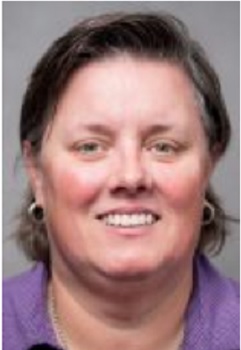
Kathy Rawls named new director of N.C. Division of Marine Fisheries
When Kathy Rawls becomes the new director of the N.C. Division of Marine Fisheries on May 1, she will have plenty of experience to draw on. Rawls has been with the Division for more than 25 years, the past seven as the Fisheries Management section chief. She also will be the first woman to head the agency since the Fisheries Commission Board became the Division of Commercial Fisheries in the late 1920s. “There are already a number of women in pivotal roles at the division, and I do feel a responsibility to represent them and other female colleagues, but I also know that gender is not part of the job description,” >click to read< 13:29
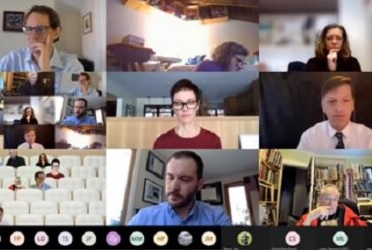
David Ismay, undersecretary for climate change resigns following remarks about reducing emissions by seniors on fixed incomes
“Let me say that again, 60 percent of our emissions that need to be reduced come from you — the person across the street, the senior on fixed income,” he said. “There is no bad guy left, at least in Massachusetts, to point the finger at, turn the screws on, and, you know, break their will, so they stop emitting. That’s you. We have to break your will. I can’t even say that publicly.” >click to read< 09:18

Baker’s embattled climate undersecretary targets fishing industry for Euro wind farmers!
David Ismay is again being called out for his questionable comments — this time against fishermen. The Massachusetts Fiscal Alliance, that broke the first video on the $130,000-a-year official’s rhetoric, says he also told climate activists that in order to obtain enough (offshore) wind power, “something has to give” in regard to the fishing industry. “We need offshore wind, and yes there is fishing out in the ocean too, but you know, there’s, we can’t have no offshore wind, no transmission, no solar, and have clean energy. Right. Something has to give,” Ismay is quoted telling Vermont climate advocates. He goes on to discuss transmission lines that will be placed in the ocean. >click to read< 13:00
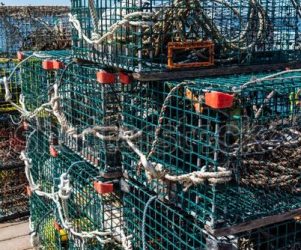
Massachusetts Marine Fisheries Advisory Commission bans inshore lobstering during whale migration
Meeting via webinar, the MFAC overwhelmingly approved five of the six recommendations presented by the state Division of Marine Fisheries, setting the stage for a hectic start to the state’s 2021 lobster fishing season.,, A Feb. 1 to May 15 closure to commercial trap gear in all state waters,, weaker buoy lines,, A Jan. 15 to May 15 gillnet closure in Cape Cod Bay,, All but one of the approved measures passed on unanimous 8-0 votes. The exception was the recommendation for the Feb. 1 to May 15 commercial trap gear closure in all state waters. The lone dissenting vote on the measure came from longtime Gloucester lobsterman Arthur “Sooky” Sawyer, “I can’t support this motion. The Massachusetts inshore lobster fishery has never killed a right whale. I’m voting no.” >click to read< 18:35
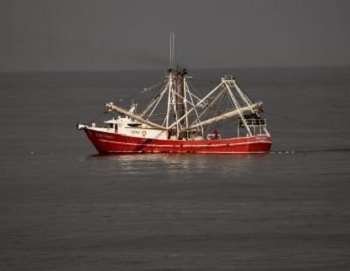
One lawsuit dismissed, another filed against State of North Carolina over fisheries management
The latest suit was filed on Tuesday in state court, the same day another group’s legal action against government officials’ management of marine fisheries in North Carolina was dismissed in federal court. The Coastal Conservation Association of North Carolina, along with 86 North Carolinians, filed their civil action Tuesday against the state in Wake County Superior Court. In an unrelated case, an organization called the North Carolina Coastal Fisheries Reform Group filed a federal lawsuit in August saying regulations that allow large, ocean-going shrimp trawlers to work in the state’s sounds violated the Clean Water Act. >click to read< 08:01
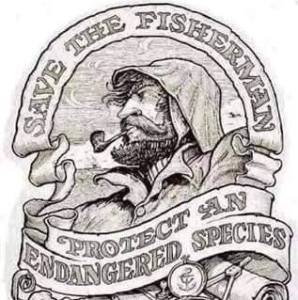
Baker Polito Administration Announces Coronavirus Disaster Relief Funding for Fishing and Seafood Industries
The Baker-Polito Administration has announced the distribution of $27.8 million in federal disaster relief funding to mitigate the financial impacts to the fishing and seafood industries from the Coronavirus COVID-19 pandemic. The Division of Marine Fisheries worked with fishing industry stakeholders to develop a plan to distribute the federal fisheries assistance, which has now been approved by the National Oceanic and Atmospheric Administration. >click to read< 11:12

DMF begins process of distributing federal CARES Act relief to fishing and seafood industries
The Division of Marine Fisheries has begun the process to distribute federal disaster relief that Congress and the President approved to mitigate the financial impacts to marine fisheries participants that have suffered at least a 35% loss of revenue due to the ongoing pandemic. In the days ahead, some Massachusetts permit holders in certain sectors will be receiving mailed applications. In March, the CARES Act provided $300 million of aid for the seafood industry with $27.8 million coming to Massachusetts, the third highest of all coastal states. The funds were allocated among the states based on the relative contributions to the economy of four distinct sectors: commercial fishing, marine aquaculture, seafood processing, and for-hire (party and charter boats) fishing businesses. >click to read< 10:14
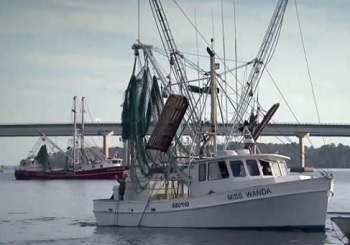
A group threatens a lawsuit over NC shrimping rules
A group pushing for changes to North Carolina’s commercial fishing rules sent formal notice last week that it plans to sue the state and one of the largest shrimping companies on the coast. The N.C. Coastal Fisheries Reform Group said that after “over a decade of unsuccessful attempts to engage in meaningful fisheries management reform dialog” with multiple governors, lawmakers and state officials it was filing a notice of claim under the Federal Clean Water Act. That starts a 60-day clock ahead of a lawsuit. The group said in a news release that, with another shrimping season approaching, time is of the essence. >click to read< 12:00
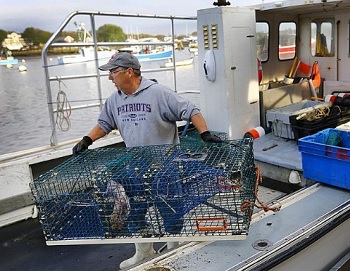
Right whale sighting pushes back start of South Shore lobster season
Lobster season in southern Massachusetts has been put off for an additional seven days after endangered right whales were spotted feeding in the southern Cape Cod Bay. The Division of Marine Fisheries announced Tuesday that most of Cape Cod Bay and the Outer Cape will remain closed to lobster fishing until May 8. The area is is closed annually from February to the end of April to protect right whales. It was initially set to open on Friday. The lobstering season on the South Shore is limited by the season and by the lobster’s life cycle. They shed their shells in June and are not active again until mid-July, John Haviland, president of the South Shore Lobster Fishermen’s Association, said. The bay closures started six years ago and increased the length of time lobstermen are out of the water. Before the closures,,, >click to read< 18:18
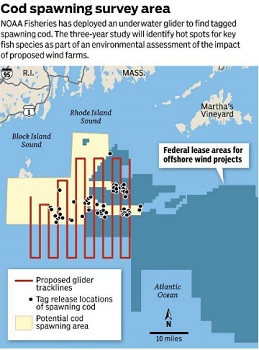
Federal study surveys spawning Atlantic Cod – Research area sits in waters zoned for offshore wind projects.
NOAA, the state Division of Marine Fisheries, Woods Hole Oceanographic Institution and the University of Massachusetts Dartmouth School of Marine Science and Technology are all participating in the study, which is funded by the U.S. Bureau of Ocean Energy Management. The research is focused on what may be one of the last remaining major seasonal spawning gatherings in the Northwest Atlantic, according to the state Division of Marine Fisheries. “It’s certainly been a persistent spawning aggregation and there are not many in New England,” said fisheries scientist Steve Cadrin, principal investigator on the project for the School of Marine Science and Technology. Atlantic cod populations are at historic lows, hammered by chronic overfishing and climate change. >click to read< 07:06






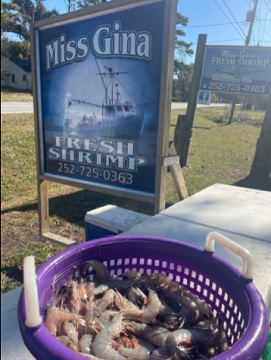




























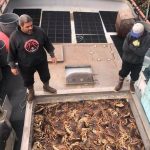
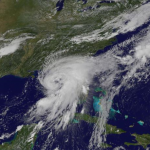


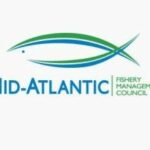
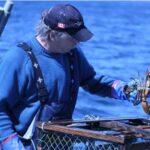
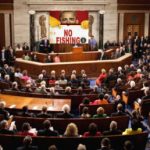





North Carolina: Public Comment Opens for Shrimp Fishery Management Plan
The public has until June 30 to submit comments on proposed shrimp fishery management changes aimed to further reduce bycatch of nontarget species and minimize ecosystem impacts, the state Division of Marine Fisheries announced,, Draft amendment 2 to the shrimp fishery management plan contains a suite of management options that range from current management practices to a complete closure to shrimp trawling of all inside waters, including Pamlico Sound, according to the division.,, Draft shrimp amendment 2 also includes a shrimp trawl bycatch information paper,,, There are three ways to comment on draft shrimp amendment 2, >click to read< 12:51
Share this post